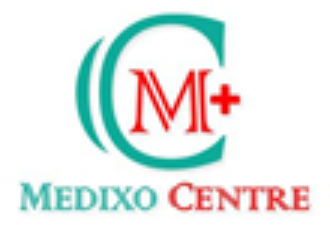Health
Importance of the Elderly’s Relationship With Their Primary Care Physicians
A strong patient-physician relationship is a core to giving medical attention. It holds an impact on an ongoing treatment plan. Older people are prone to go through diseases because of weak immunity. Primary care physicians are there to help with the routine healthcare needs of patients. It is crucial to regulate doctor’s appointments to reap the maximum healthcare benefits.
Adapting to the many health conditions that come with growing age can be efficiently managed by establishing a long-term relationship with a PCP(Primary Care Physician). They help maintain patient history and records without causing the patient any inconvenience. A focused relationship leads to a well-informed and thoroughly successful treatment plan.
Why Is There a Need for a Primary Care Physician for Elder Adults?
In this complex world, as patient needs have evolved, it is hard to find a suitable Geriatric. For this purpose, it is vital to know the Medicare Doctors Near Me, as they will be your immediate and routine medical assistance providers. Finding a doctor that fits the adult’s requirements will ensure they can maintain all their health records and develop a sense of patient satisfaction.
Forming an ongoing relationship with a PCP helps develop the first base of defense against any disorders the elder adult might be suffering from. It’s crucial to select a doctor near you who intently listens to the problems and makes the senior citizen feel comfortable.
Challenges of Aging
In a constantly changing world, a person growing old is set to face new challenges now and then. For People over 60 and 65, maintaining their health gets tough, and they need a sturdy medical provider to balance a lifestyle. Some of the challenges that aging brings with it are.
Social Challenges
Social disengagement is typical in elderlies because of a drastic change in their circle and interactions. It is known that elderlies with better emotional support from their family and primary health care providers have these benefits.
- They function better
- They can tackle minor disease conditions easily.
- They have an overall better routine and live longer
Psychological Challenges
Increased stress and resource pressure can develop severe psychological effects in elderly patients. In this case, primary care physicians can offer them assurance which can help them in the following ways.
- It can cure depression.
- They stay motivated
- They go through lesser mood swings
- They have overall improved mental health.
Financial Challenges
As people get older, they tend to retire from their regular paying jobs or cannot exert themself in their business. This can bring about financial pressure of lower income and reduced health insurance coverage. Developing a relationship with a PCP will help you in these situations in the following ways.
- They will help you learn disease prevention.
- They can give urgent medical attention before the condition gets severe, for which you will have to consult a specialist. This can cost you much less than consulting a specialist.
Significance of Primary Care Physicians’ Relationships With Elderly People
Primary Care Physicians work as links between older patients and specialists. Patient compliance is essential to maintaining this relationship. The following points can explain the significance elderly’s relationship with their Primary Care Physician
Unified Care for the Elderly Patient
Consulting various physicians at a time could have more cons than pros. This might not be regular medical data and keep the patient in a confused state with no streamlined treatment. An essential need of the elderly is a Primary Care Physician who can help in these ways.
- They streamline the medical records of elderly patients.
- They help in working towards the health goals of the patient.
- They can easily make referrals to specialists in times of need.
- They serve as health mediators for the patient.
Convenience of Continuity
Consulting several physicians because of a disoriented and doubtful state of mind is a mistake many people make. Maintaining a healthy relationship with one Primary Care Physician can provide you with the convenience of data continuity in these ways
- The primary care physician has all your medical history, whether hypertension, stomach pain, or immunization.
- You do not have to organize your records from several doctors.
- You do not have to explain the patient’s health situation and follow-ups every time you visit the physician.
- It can offer mental satisfaction as the physician already knows your condition.
Early Detection and Management of Diseases
When elderly patient is put into a primary care system, they are scheduled for regular appointments. These appointments account for carefully examining and scrutinization of all body parts and functions of the senior. Different screening procedures and evaluations are performed, and they can be helpful in these ways.
- Regular appointments can help detect serious diseases such as breast cancer, kidney dysfunction, liver abnormalities, and other fatal diseases.
- By early detection, the primary care physician can help manage the disease in its early form and make a referral to a specialist.
- Early detection and management can drastically improve the survival rates of the patient.
- This can effectively reduce the cost of treatment as early-stage treatment plans are usually less costly.
Shared Decision-Making Ability
A Primary Physician and Elderly patient relationship are essential as it drives shared decision-making between the two. It is a critical component in developing an effective treatment and compliance. The physicians try to incorporate patients’ opinions in their healthcare decisions. By doing this, the following things can be ensured.
- Patient education regarding their condition and treatment
- It helps better understand patient’s preferences and points of view
- Engaged immediate caregivers for home assistance.
- It helps in patient satisfaction.
Reduced Treatment Cost
Primary care Physicians are responsible for the first base care of the patient. Elderly patients depend on pension funds, health care insurance, and minimal financial aid in treatment financing. By diagnosing early signs of a disease, they can benefit the patient to not go through long treatment periods when they are much farther along.
- Early diagnosis can save the patient from several costly specialist visits.
- Early disease management can aid the elderly from further unbearable treatment costs.
- Medical assistance for some conditions can be offered by physicians for which you do not have to go to specialists, saving you a lot of money.
Ease the Communication Gap
Cognitive problems are prevalent in patients with old age. Having a long-term relationship with a Physician helps them communicate better, understand terms better and not go through confusion and stress.
- Primary Care Physicians use articulate methods to help inquire elderlies about their medical issues.
- They ease communication by understanding their mode of context and using it for their benefit.
- They try to use accessible language and make the senior’s visit as comfortable as possible.
Patient-Centered Care
Elders need individual management. Physicians have a significant role in this care as they offer individual patient-oriented care. They do not try to promote medication or different practices. A good physician-elderly patient relationship optimizes care and treatment plans.
- The primary physician uses the unit approach to deal with an elder patient.
- They try to make the treatment as optimal for that patient as possible.
- Primary Care Physicians make individual care plans for every patient.
Conclusion
With old age comes the impending stresses of health disorders, social vulnerability, and weak immunity. At this age, developing a lasting relationship with a Primary Care Physician is a need. Due to certain psychological, financial, and social factors, the senior citizen might be affected, and a physician can provide you with ultimate medical care.
The Elderly’s relationship with a Primary Physician is vital as they provide integrated and patient-oriented care. They provide accessible communication, understanding, and early screening and management of high-risk diseases. This saves the patient from high costs of specialist visits, confusion, stress, and fatal conditions in the longer run.











